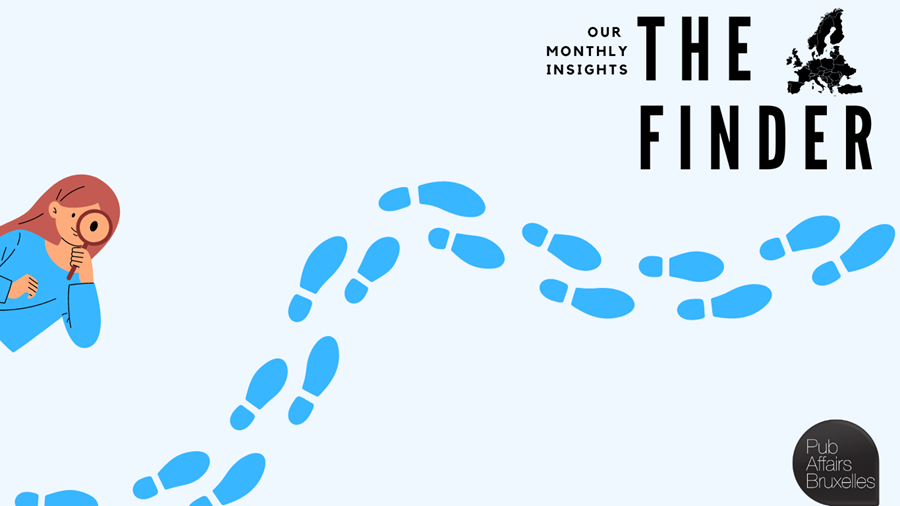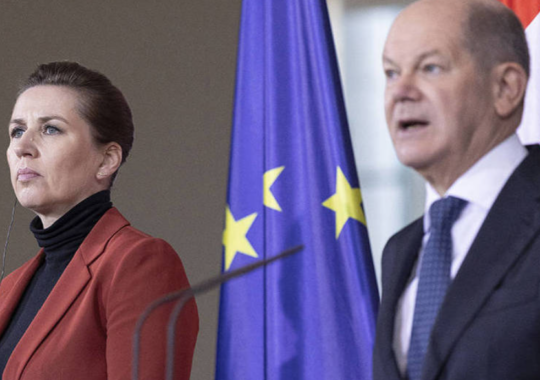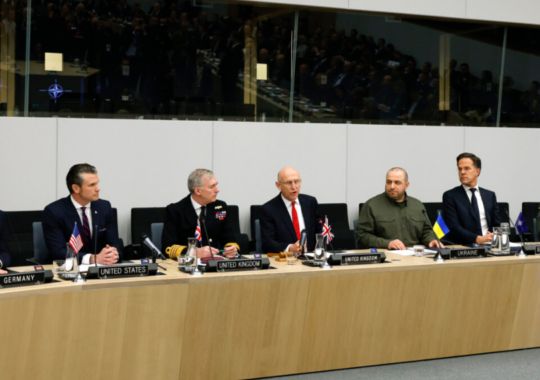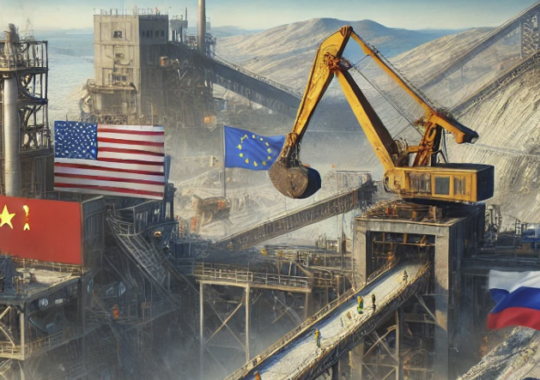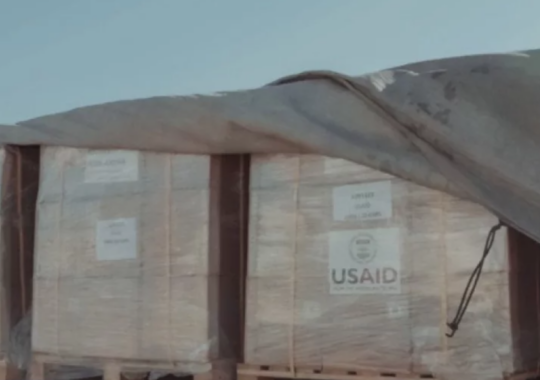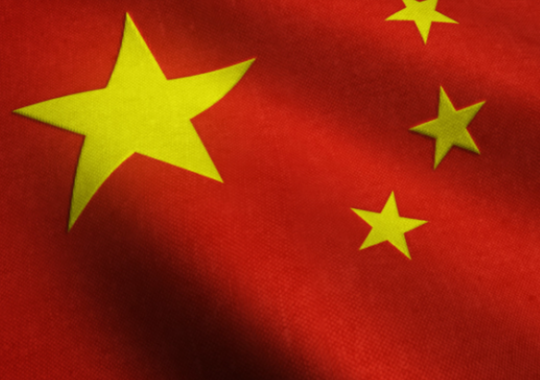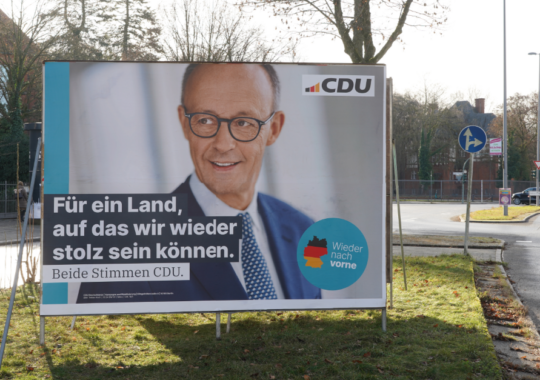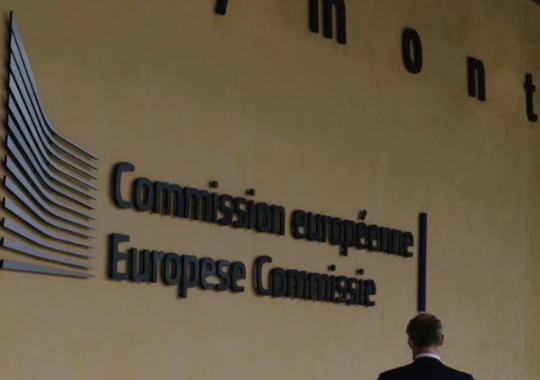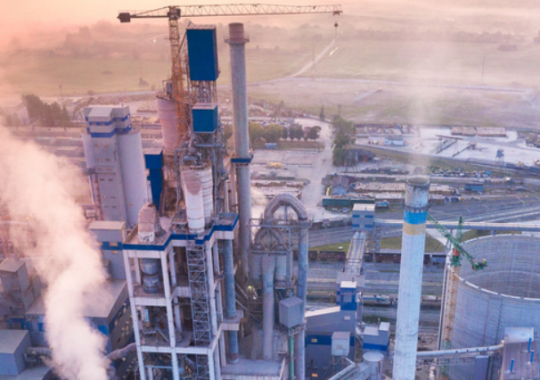Issue 14 – February, 2025
The Finder | Our monthly Insights | Issue 14 – February, 2025
Geopolitics, Europe’s competitiveness and trade in the aftermath of the 2025 German election
The long-expected rocky start of the Trump administration and its stances on trade and foreign policy have dominated the spotlight of both the European and the international agendas. In addition, the shockwaves of the US President’s “unorthodox” approach to initiate peace talks on Ukraine have resulted in several authoritative commentators both highlighting, once again, the risks of Europe’s geopolitical irrelevance and triggering calls for the old continent to “do the unthinkable” and regain the capability to advance its own geopolitical interests, with special regard to the question of defence.
This foreseeable state of play has reconveyed the spotlight to the question of Europe’s political and diplomatic unity, but has also represented a wake-up call for EU member states, as internal disagreements are a challenge which is as relevant as the external pressure from the US, Russia and, to a different extent, China. Indeed, as remarked by a former French diplomat and EU ambassador, “in many ways, Russia’s aggressive policies and the US administration’s unprecedented attitude are combining to alter the pillars of international relations. Europe finds itself at a watershed moment in its modern history, facing both a disruptive autocracy in Russia and an ally-turned-bully in the US”.
The future trajectory of this backdrop remains to be seen. However, the acknowledgment of a seismic shift in transatlantic relations by the soon-to-be chancellor Friedrich Merz provides a window of opportunity for the European Union. As highlighted in a recent Chatham House commentary, the German election saw remarkable gains for the far-right. Nonetheless, the results could still produce a stable government capable of steering both Germany and Europe through an era of unprecedented security and economic challenges.
Indeed, Friedrich Merz is set to govern Germany – albeit economically and (geo)politically weakened – under the CDU-CSU leadership, a powerful faction also within the European People’s Party (EPP). Due to the EU’s political and diplomatic balance, the EPP holds significant sway in both the European Parliament and the Council, and was in a position to re-confirm Ursula von der Leyen – notably a CDU member – as President of the European Commission. This setting could bring new momentum to the European Union on the condition that European leaders manage to find collective solutions within a fragmented framework.
Moreover, Europe’s challenges go beyond the geopolitical and diplomatic realms. In fact, its global influence is also constrained by its underwhelming economic performance and the difficulties in competing with the US and China. As bluntly put by a seasoned economist, the EU must “step up investments in infrastructure, digitalisation, education and defence. Reduce bureaucracy and intensify cross-border co-operation and integration on key issues such as energy, telecommunications and so much more … 2025 really is a make-it-or-break-it moment for Europe. And not like in the old days of last-minute crisis summits. The kicked can has finally run out of road. Europe needs to change. And change fast”.
Within this context, under the recognition that immediate action is needed, the European Commission put forward a Clean Industrial Deal to support European industries with a comprehensive vision for decarbonisation and competitiveness as drivers of growth for the continent’s industries. The plan aims to grant more certainty and predictability to both companies and investors. The First Omnibus package on simplifying sustainability regulations and a Second Omnibus package on simplifying investments, as well as an Action Plan for Affordable energy, are also to be presented soon with the aim of cutting red tape to further stimulate growth and job creation. This, however, is only the beginning of the new EU mandate’s journey.
Quoting Ana Palacio, an academic and Spain’s former minister of foreign affairs, “a volatile geopolitical environment, the loss of the US as a reliable partner, democratic backsliding in some member states, and declining economic competitiveness are just some of the challenges the EU will have to confront in 2025. How it addresses them will determine its future as a global actor”.
A Project Syndicate Commentary highlights that, in order to craft a strategically effective response to Donald Trump’s provocations, the European Union must first acknowledge the US president as a nationalist with an imperialist mindset, reminiscent of the nineteenth century. Approaches that may have been effective with a conventional Atlanticist or isolationist will not be successful with him. The author also adds that Europeans face the challenge of understanding the motivations behind President Trump’s verbal provocations, whereas his true intentions are often unclear, thus making it hard to formulate a strategically effective response.
Regarding Ukraine’s peace negotiations, an ECFR Commentary also highlights the difficulty of deciphering US tactics. The author further observes that it is certain that Europeans must get their act together, not only for Ukraine’s sake but for their own security interests as well. Indeed, if Europe wants to have a seat at the negotiating table rather than being sidelined, it must act with unity and clarity, instead of remaining surprised and divided. Some initial statements are moving in this direction, but this effort should be actively pursued through specific actions to send a clear message to Kyiv, Moscow and Washington, she argues.
On the same note, but on the question of Trump’s transactional approach to negotiations, a Clingendael Policy Alert states that “trying to grab Ukraine’s minerals is a recipe for further instability”. The authors address how Ukraine has used its mineral resources as a bargaining tool, highlighting the risk of the ‘resource curse’ that comes with it and how critical raw materials (CRM) could contribute to Ukraine’s long-term growth. To achieve this, they assert that Europe should support the development of CRM-related value chains within Ukraine. The authors also emphasise the importance of encouraging not just the extraction of minerals for export, but also the development of local processing and manufacturing capacities. Focusing on local value creation as part of the EU accession process would also align with EU policies on transparency, due diligence and good governance, they underscore.
Regarding the global impact of Trump’s series of executive orders, an ECDPM Commentary elaborates on how the new administration’s dismantling of USAID has significant implications for the EU’s foreign and development policy objectives. The author maintains that a sudden dismantling of USAID marks a major upheaval in international development, even if the final reductions are less drastic than anticipated. The author further states that the EU must act quickly and strategically to minimise the impact, maintain support for vulnerable populations and strengthen its strategic partnerships. Despite the significant challenges, a coordinated European response could serve as a crucial counterweight to US withdrawal whilst reinforcing the EU’s distinct role, he concludes.
An SWP Commentary analyses China’s reasons, development and perspectives on the Artic by pointing out that, aside from a few failed infrastructure projects and an unexpected visit by the icebreaker Xuelong near Greenland’s capital, Beijing has historically maintained a cautious and low-profile presence in the Arctic, overshadowed by Russia and its fleet of icebreakers. However, in July and August 2024, three icebreakers marked a significant shift, demonstrating China’s growing footprint in the region. This move, the author underscores, signals Beijing’s more ambitious intentions, and in his view the development of a heavy icebreaker could pave the way for a permanent Chinese presence in the Arctic Ocean.
Whereas, regarding the German elections, an Ifri Paper analyses the challenges of both the CDU party and the next chancellor. The author notes that, having represented the right-wing faction of the CDU for decades, Friedrich Merz is attempting to counter the AfD’s rise with a mix of economic liberalism and social conservatism. However, his anticipated victory comes at a time of significant challenges for the next government, regardless of who is going to lead it. Key issues such as immigration, economic instability, the debt crisis and Ukraine’s peace talks have shaped both the CDU’s electoral campaign and its ability to govern if it returns to power. This election was expected to be one of the most ideologically polarised in years, making future coalition-building with the SPD or the Green Party particularly challenging, he foresees.
On the questions of the EU institutional setting and of foreign policy and defence, a Finabel Publication outlines that the recent appointment of Andrius Kubilius as the first-ever Commissioner for Defence highlights the significance of the industrial defence strategy for the von der Leyen II Commission. However, the author highlights that the relationship between this new role and the High Representative of the Union for Foreign Affairs and Security Policy/Vice President of the European Commission (HR/VP) remains unclear. Indeed, potential overlaps and jurisdictional conflicts could weaken the HR/VP’s position and, eventually, cause delays and frustration among EU member states. This setting also raises the question of where these conflicts might arise and what mechanisms could promote better coordination to enhance European defence capabilities.
A CER Policy Brief engages with the questions of how to build and fund a better EU green industrial policy by acknowledging that the EU was one of the first players to take action on climate change, using regulations and carbon pricing to encourage investments in decarbonisation. As a result, the bloc has taken the lead in various technologies for clean electrification, and has been increasing its share of global exports of hybrid and electric vehicles. However, the authors also remark that the EU must develop and finance a unified green industrial policy to ensure the survival of its emerging clean-tech sector.
In turn, on the very question of financing, a CEPS Commentary highlights that, as emerged from a study presented at the Green Swan 2024 conference, reducing carbon emissions may cause short-term productivity losses and a costly production restructuring. During this period, central banks will face more difficult decisions between inflation and unemployment, with increased inflation volatility. Although a higher inflation rate might be needed to adjust prices and encourage investment in green industries, strict monetary policies could impair innovation in the green sector. To address this, additional measures, such as targeted credit policies and subsidies, may be required to support green investments whilst managing inflation. Despite this, these measures may not be sufficient to prevent a future financial crisis. Achieving the Green Deal’s goals for a sustainable future in Europe will likely require exploring more unconventional policy interventions.
This editorial is authored by Massimiliano Gobbato, Communications Director. Contributions by PubAffairs Communications Team’s Nicole Finucci, Kristina Vilenica and Jacopo Bosica to the drafting of ‘The Finder’ are gratefully acknowledged.
From our Editorial Partners
Europe can and must resist Trump | Project Syndicate
To formulate a strategically effective response to Donald Trump’s provocations, the European Union must first recognize the US president for what he is: a nineteenth-century-style imperial nationalist. Options that might have worked with a traditional Atlanticist or isolationist will not work with him.
Ukraine negotiations: How Europeans can be at the table, not on the menu | European Council on Foreign Relations (ECFR)
Donald Trump has spoken to Vladimir Putin, and they are ready to begin negotiations to end the war in Ukraine. Already, the US has ceded to two major Russian demands. How Europeans respond is crucial for the future of Ukraine and of the continent’s security.
Grabbing Ukraine’s minerals is a recipe for further instability | Clingendael
Donald Trump’s proposal of tying US military aid for Ukraine to gaining access to its minerals is but the latest in a series of statements that have placed a magnifying glass on resource powerplay. President Trump reiterated his frustration about the US providing more military support to Ukraine than European allies, claiming that Washington should receive something in return: namely, critical raw materials (CRM), which are vital for high-tech industries.
Turmoil in USAID and the challenge for the EU's response | ECDPM
The Trump administration’s dismantling of USAID carries deep consequences for the EU’s foreign and development policy goals. Andrew Sherriff argues that the EU should grab this opportunity if it wants to strengthen its global relevance and show that it can be a more useful and reliable partner.
China's Arctic turn | German Institute for International and Security Affairs (SWP)
Apart from several infrastructure projects which ultimately failed, and a surprise visit by the icebreaker Xuelong off the Greenlandic capital, Nuuk, the People’s Republic of China has long maintained a cautious and reserved presence in the Arctic in the shadow of Russia and its fleet of icebreakers. But in July and August 2024, three icebreakers – Xuelong 2, Ji Di and Zhong Shan Da Xue Ji Di – made China’s growing presence felt in the Arctic for the first time ever.
The CDU in the 2025 elections: a road to the chancellery, paved with challenges | Institut français des relations internationales (Ifri)
After a legislative session in the opposition, the Christian Democratic Union/Christian Social Union (CDU-CSU) looks set to win the snap elections in February 2025. It is very likely that the country’s future chancellor will be Friedrich Merz.
The High Representative of the Union (HR/VP) and the new Commissioner for Defence and Space: Necessary Cooperation for the Future of the European Defence Union | Finabel
The recent appointment of Andrius Kubilius as the first-ever Commissioner for Defence remarks the importance of the industrial defence strategy for the Commission Von der Leyen II. However, the complementarity between this new portfolio and the High Representative of the Union for Foreign Affairs and Security Policy/ Vice President of the European Commission (HR/VP) is still uncertain.
How to build and fund a better EU green industrial policy | Centre for European Reform (CER)
As the EU aims for net-zero carbon emissions by 2050, the next frontier for decarbonisation is in energy-intensive industries. This ties the EU’s climate ambitions to the need to preserve its industrial competitiveness. At the same time, both the US, with the Inflation Reduction Act (IRA), and China, with its endless state support, have been funding green industries, from renewables to electric vehicles (EVs).
Why Europe needs a climate bad bank to avoid a ‘green swan’ | Centre for European Policy Studies (CEPS)
In the age of the poly-crisis, the world is constantly lurching from one disaster to another – from unprecedented flooding in Spain to a once-in-a-lifetime pandemic, from new bouts of political instability to ongoing conflict in the Middle East. Indeed, the poly-crisis has morphed into a ‘permacrisis’ and the impacts of climate change are a clear manifestation of this new reality. One must only witness the widespread destruction caused by the recent wildfires in California to understand the urgency of the climate crisis.

